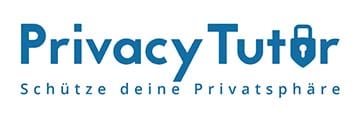Secure password wanted
There is no such thing as a secure password – only insecure and less insecure ones!
Passwords are ubiquitous these days. A password must be set for every account, every user account. This quickly leads to a lot of passwords – no wonder that many people are overwhelmed by this large number and neglect security. In everyday life, the great dangers that arise as a result are often hidden. Or do you regularly worry about identity theft and hacker attacks? With a less insecure or a relatively secure password, you can effectively prevent this.
In this article you will learn how to create a relatively secure password and how to remember it quickly.
4 criteria for a relatively secure password
The fact that so many people use insecure passwords is in many cases also due to the fact that they don’t even know what constitutes secure passwords. So let’s take a look at the four most important criteria for strong passwords.
Number of characters
Use at least 10 characters!
The more characters you use, the more secure your passwords will be. Because short passwords are easy to crack and present only a minor hurdle for hackers. Use at least ten characters, preferably even twelve or more.
Long passwords with many characters protect you effectively against machine attacks. Because the length of the password is the most important factor that can thwart an attack.
Use more than just letters
Mix letters, numbers and special characters!
If you create your new password with twelve or more characters, it is also important which characters you use. You should mix letters, numbers and special characters. This makes it harder for hackers to crack your password.
It is best to avoid repeating two characters in a row. There are so many letters, numbers and special characters – create as much variation as possible.
Upper and lower case letters
Combine upper and lower case letters!
When you are creating your new, long password, you should use upper and lower case letters. Here too, try to mix them as colourful and illogical as possible. This makes it much more difficult for criminals to crack your passwords.
No personal data
Do not use personal data as a basis!
When creating a password, you should always try to make it as difficult as possible for hackers to crack it. And this includes that you never use personal data as a basis. After all, a lot of data about every person can be obtained on the Internet. So it is easy to find out your date of birth or your mother’s name.
Criminals know that many people tend to include personal data in their passwords. That is why it is particularly easy to crack such passwords. So try to use a password that is as illogical as possible and does not contain any personal data.
By the way, many criminals work with special programs that try out whole dictionaries as passwords in just a few minutes. You should therefore also avoid using hobbies, sports or similar as passwords.
Further criteria and 9 don’ts for password creation can be found here in this German article.
How to remember your relatively secure password
If you have created a password that meets the criteria from the previous chapter, you have probably received a crazy combination. So you rightly ask yourself how you should remember this password.
There is an alternative: the passphrase. This is based on the idea that several words are strung together directly. The result is a rather long password that you will probably find easier to remember.
Such passwords then usually have more than 20 characters and are therefore difficult to crack. Algorithms also have difficulties in deciphering such combinations.
An example of such a password would be “IlikeeatingIceCreamBiscuitsChocolateCake” It has 40 characters and is easy to remember. If you want to create a password after the passphrase, you should pay attention to some points:
- Use at least four words.
- Avoid familiar proverbs.
- Avoid common words like “password” or “hello”.
- Add special characters to the passphrase.
Your password will be even more secure if you replace some letters. For example, you can replace an “i” with a “1” or a “! An “a” is a visual reminder of an “@”. Just be creative and create a password that you can remember easily.
Unfortunately this method does not work on all websites. Often there are character limits that prevent long passwords.
Why you should use a separate password for each website
Those who use a secure password often have difficulty remembering it. This is why many people use the same password for several websites and user accounts. This is very dangerous and it is better to use a unique password for each site.
Because if a hacker cracks your universal password, he has access to several or even all of your accounts. There he can cause great damage and steal an enormous amount of personal data about you.
Identity theft is becoming an increasing problem online. People are being hit hard financially and have to endure a lot of trouble. You can prevent this by using a unique and secure password for each website and account. Even if they are hard to remember.
If you need many passwords and cannot remember them, a password manager can help you. You can read more about this in the next chapter.
Keeping an overview with a password manager
If you want to use only secure passwords from now on, this is a very good decision. But you will soon realise that it is really difficult to remember more than ten secure passwords. The combinations are so arbitrary and complicated that it is easy to forget them. A password manager can help.
What are the advantages of password managers?
A password manager is a simple management programme in which you manage and store your passwords. The first step is to enter all your passwords into the encrypted database of your password manager.
If you want to retrieve a password afterwards, you must enter a master password. This should be extremely secure and well kept under lock and key. Make sure that only you know the master password and no one else can access it. It should not be written down anywhere, it is best to remember it.
With a password manager your passwords are absolutely safe. The databases are stored with the latest standards and are absolutely secure. You no longer have to write down your passwords on pieces of paper or in notebooks, which is also a major security risk.
Some providers also use a 2-factor authentication. Then you need two passwords or codes to log in. This prevents unauthorised access to your passwords. For example, you can have a code sent to your smartphone to log in.
Two recommendations for password managers
I would like to recommend two password managers, KeePass and Bitwarden:
KeePass¹ is one of the most popular password managers. The management programme is particularly suitable for use on a PC. After you have entered your passwords into the manager, you save them on your own hard drive. Your passwords are therefore not stored in any cloud, but remain on your computer.
You can also easily move the data to other devices using a USB stick. Security is also provided for when you log in: there is a 2-factor authentication. KeePass also offers you a password check and a warning function for hacker attacks.
Because KeePass is an OpenSource programme, it is considered to be particularly trustworthy. Anyone can view the source code – so there are no hidden backdoors. You can use the manager for free and voluntarily donate a contribution to the manufacturer.
Bitwarden² is also a popular password manager. It is also an open source application that you can use for free. If you already use another password manager, you can easily switch to Bitwarden thanks to the import function. You also have the possibility to activate the 2-factor authentication with this provider.
Among the practical functions of Bitwarden are the marking of favourites, the creation of folders for structuring and the additional storage of credit card information, identities and other data.
Conclusion
Manage your secure passwords with a password manager!
Secure passwords are an absolute must nowadays. Manage your passwords simply and easily with a password manager in a secure database. They are securely stored there and you will never forget a password again. Use the tips for creating a relatively secure password, use a new password for each website or user account. And always be careful.
Notes:
Are you interested in further German contributions on the subject of security and privacy on the Internet? Then it’s worth taking a look at PrivacyTutor.

Alexander Baetz
Alexander Baetz works as a freelance web designer for medium-sized companies. Since completing his Bachelor’s degree in Business Informatics in 2018, he has been concerned with privacy on the Internet. What he has learned in the process, he and his girlfriend Lena show on PrivacyTutor.
